Introduction
“Democracy is the word for something that does not exist.”
Karl Popper
For something that does not exist, democracy has certainly been much talked about recently. Moreover – at least in Europe – “real-existing” democracy seems to have a promising future, although it is currently facing an unprecedented diversity of challenges and opportunities. The issue is not whether the national, sub-national and supranational polities that compose Europe will become or remain democratic, but whether the quality of this regional network of democracies will suffice to ensure the voluntary support and legitimate compliance of its citizens. For there is abundant evidence that the citizens of Europe – while they may not agree on its existent practices or even know what “it” really is – will not tolerate non-democracy.
Mal governo, that is regimes that are not responsive to needs, that engage in corrupt practices, that defraud the electoral process, that restrict or manipulate basic freedoms and that refuse to be accountable to their citizens, do not have a secure future in this part of the world. Not only are they likely to be overturned by their own citizens, but these actions are also likely to draw support from the other national, sub-national and supranational polities in the region.
The major reason for this optimism is simple: the democratisation of Europe’s “near abroad” and its subsequent incorporation within the region as a whole. There is no better illustration of this than the expansion in membership of the Council of Europe from twenty-one states in 1988 to forty-five states in 2003, and the enlargement of the European Union (EU) from fifteen to twenty-five in 2004. With the success of these national efforts at regime change to its East, Europe has become and should remain an enlarged zone of “perpetual peace” in which all of its polities can expect to resolve their inevitable differences of interest peacefully through negotiation, compromise and adjudication. Moreover, there exists an elaborate Europe-wide network of trans-national institutions, inter-governmental and non-governmental, to help resolve such conflicts and draw up norms to prevent their occurrence in the future.
Ironically, this much more favourable regional context presents dilemmas of its own for democracy. Many (if not most) of the major historical advances in democratic institutions and practices came in conjunction with international warfare, national revolution and civil war. Fortunately, none of these Archimedean devices for leveraging large-scale change seems to be available in today’s pacified Europe – although rebellion again the mal governo of a corrupt, unresponsive or non-accountable democracy is still a grass-roots device very much within the potential reach of citizens. It is our presumption that democracy cannot only live with peace, but thrive with it – if, however, it can learn to reform institutions and practices in a timely and concerted manner. We draw five (tentative) conclusions from this unprecedented state of affairs.
First, established democracies in Western and Southern Europe will find it increasingly difficult to legitimate themselves by comparing their performance with that of some alternative mode of domination, whether real or imagined. Now that liberal democracy has become the norm throughout Europe and overt autocracy persists only in countries with markedly different cultures and social structures, the standards for evaluating what governments do (and how they do what they do) will become increasingly “internal” to the discourse of normative democratic theory, that is to what differing conceptions of democracy have promised over time and for which citizens have struggled so hard in the past. Therefore, there should be a tendency towards a convergence in formal institutions and informal practices within Europe that will, in turn, lead to a narrower and higher range of political standards.
Second, new democracies in Central and Eastern Europe and the western parts of the former Soviet Union will find it increasingly difficult to legitimate themselves simply by arguing that they are so burdened by their respective autocratic heritages that they cannot possibly respect the norms of behaviour and attain levels of performance set by established democracies. The standards that their recently liberated citizens will apply in evaluating their rulers will rapidly converge with those already in use in the rest of Europe.1 Polities failing to meet these standards will experience more frequent electoral turnover in power and may even be threatened by popular rebellion, unless their newly empowered rulers respect the rules established by the “real-existing” democracies to their West.
Third, in both cases, the polities involved will usually only be able to improve the quality of their respective democratic institutions and practices by means of partial and gradual reforms. Moreover, these reforms will have to be drafted, approved and implemented according to pre-existent norms. Rarely, if ever, will the opportunity present itself for a more thorough-going, large-scale or “abnormal” change. After all, how much change in the rules of democracy can one expect from rulers who have themselves benefited from those rules? The usual rotation of parties and party alliances in and out of power will, at best, open up only modest opportunities for change.
Fourth, we should therefore be guided by “possibilism” in our choices with regard to potential reforms of formal institutions and informal practices. We will be less concerned with what may be emerging “probabilistically” from the various challenges and opportunities that face contemporary democracies than with what we believe is possibly within their reach – provided that “real-existing” politicians can be convinced by “real-existing” citizens that the application of these reforms would make a significant improvement in the quality of their respective democracies.
Last, we must also be attentive to the principle of “transversality” which means that we will not limit ourselves to evaluating only the possible effects of any single reform measure, but always try to the best of our collective and interdisciplinary ability to seek out the interconnections and external effects that are likely to emerge if and when several reforms are implemented either simultaneously or (more likely) sequentially. As one of our participants said during the deliberations (citing R. W. Rhodes): “It is the mix that matters”.
Our guiding hypothesis throughout this Green Paper will be that the future of democracy in Europe lies less in fortifying and perpetuating existing formal institutions and informal practices than in changing them. “Whatever form it takes, the democracy of our successors will not and cannot be the democracy of our predecessors” (Robert Dahl). In other words, in order to remain the same, that is to sustain its legitimacy, democracy as we know it will have to change and to change significantly – pace de Lampedusa – and this is likely to affect all of Europe’s multiple levels of aggregation and sites of decision making.
There is nothing new about this. Democracy has undergone several major transformations in the past in order to re-affirm its central principles: the sovereignty of equal citizens and the accountability of unequal rulers. It increased in scale from the city- to the nation-state; it expanded its citizenry from a narrow male oligarchy to a mass public of men and women; it enlarged its scope from defence against aggressors and the administration of justice to the whole panoply of policies associated with the welfare state.
Our tasks in this Green Paper are to:
– identify the challenges and opportunities posed to contemporary European democracy by rapid and irrevocable changes in its national, regional and global contexts;
– specify the processes and actors in both the formal institutions and informal practices that are being affected by these external challenges and opportunities, as well as by internal trends that are intrinsic to democracy itself;
– propose potential and desirable reforms that would improve the quality of democratic institutions in Europe.


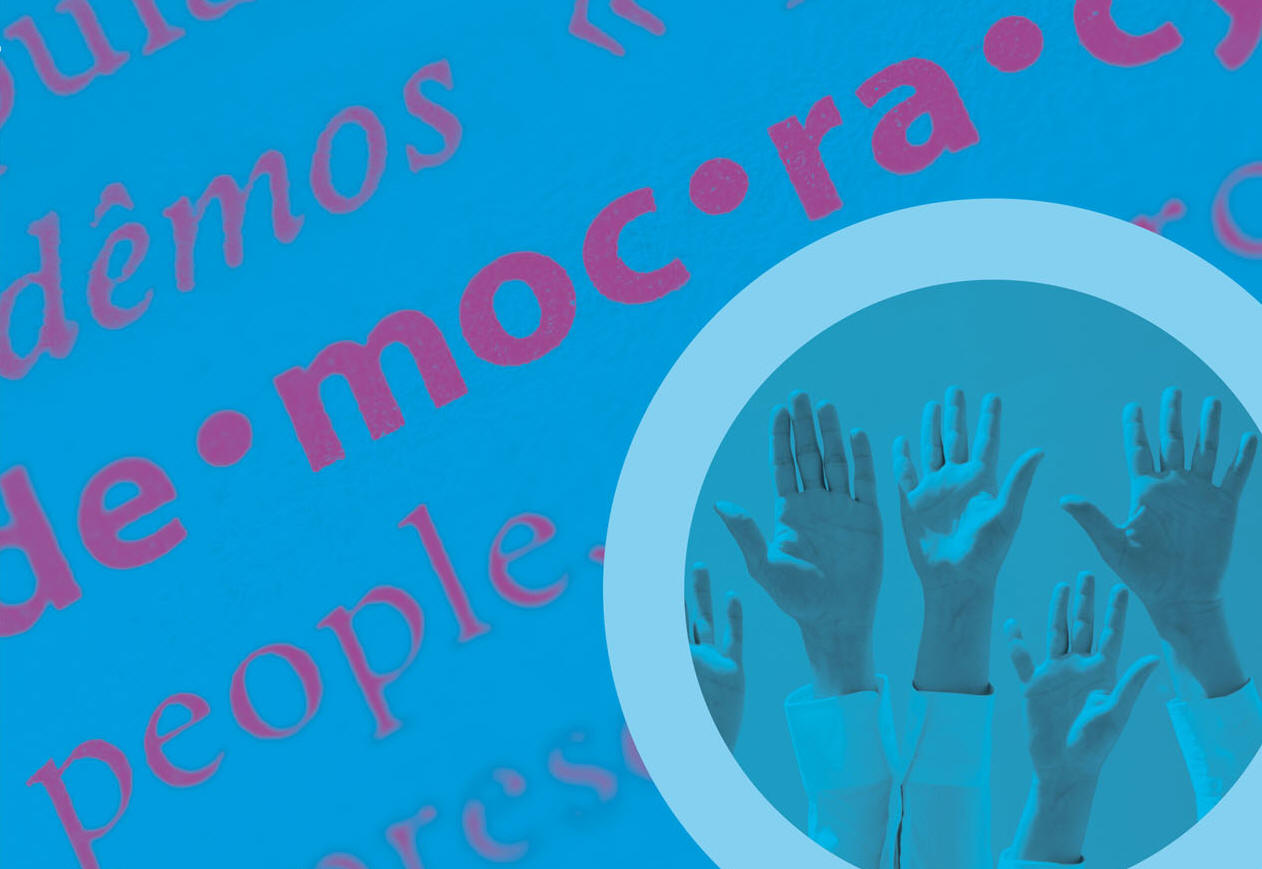
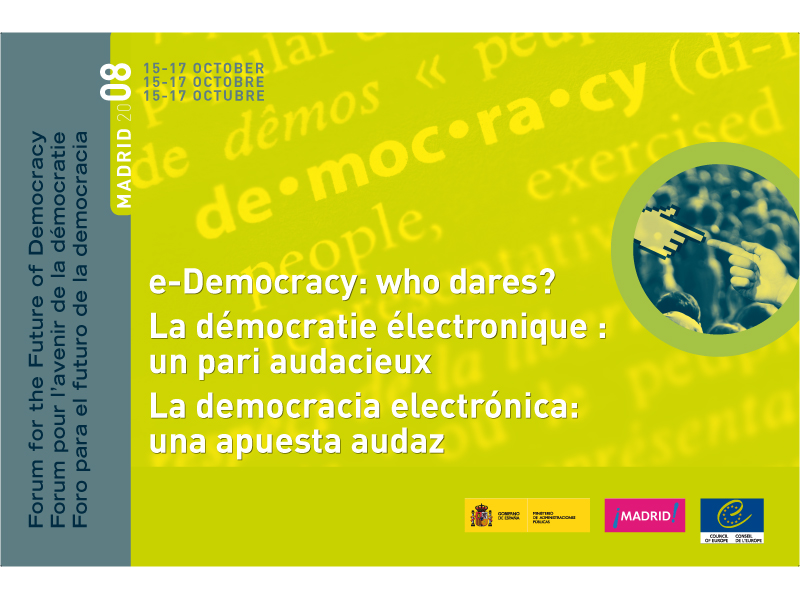
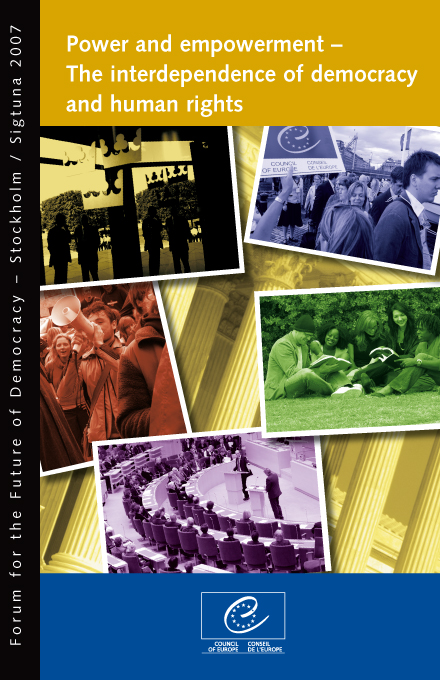
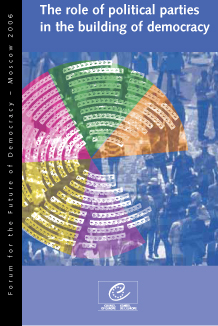
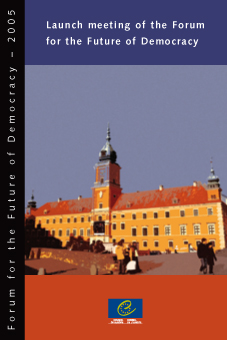
 Print
Print  Send
Send  FRANCAIS
FRANCAIS